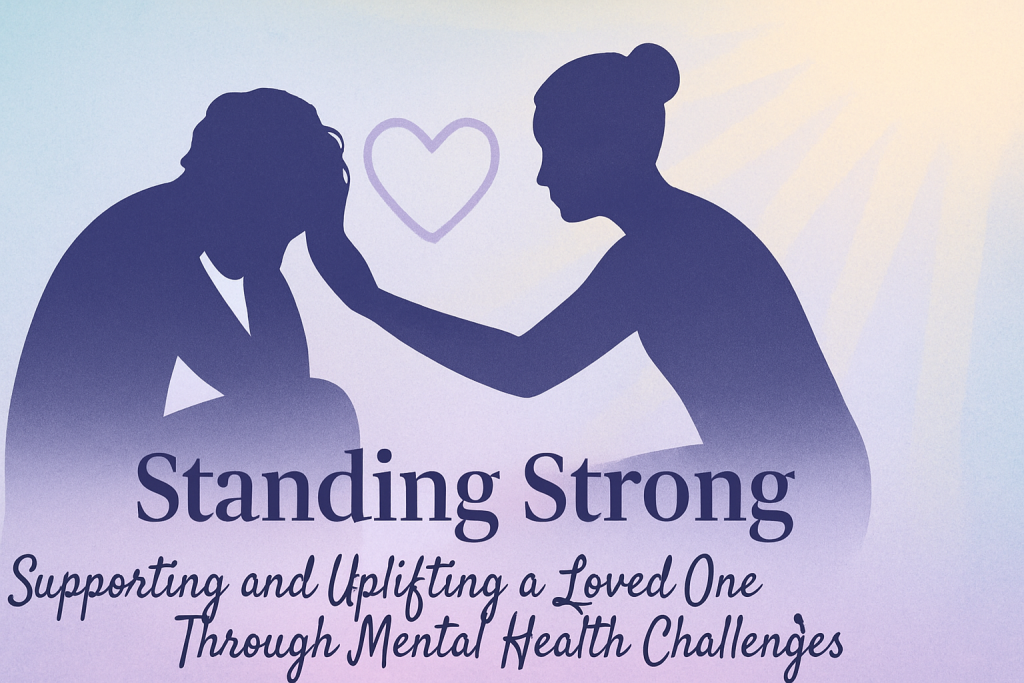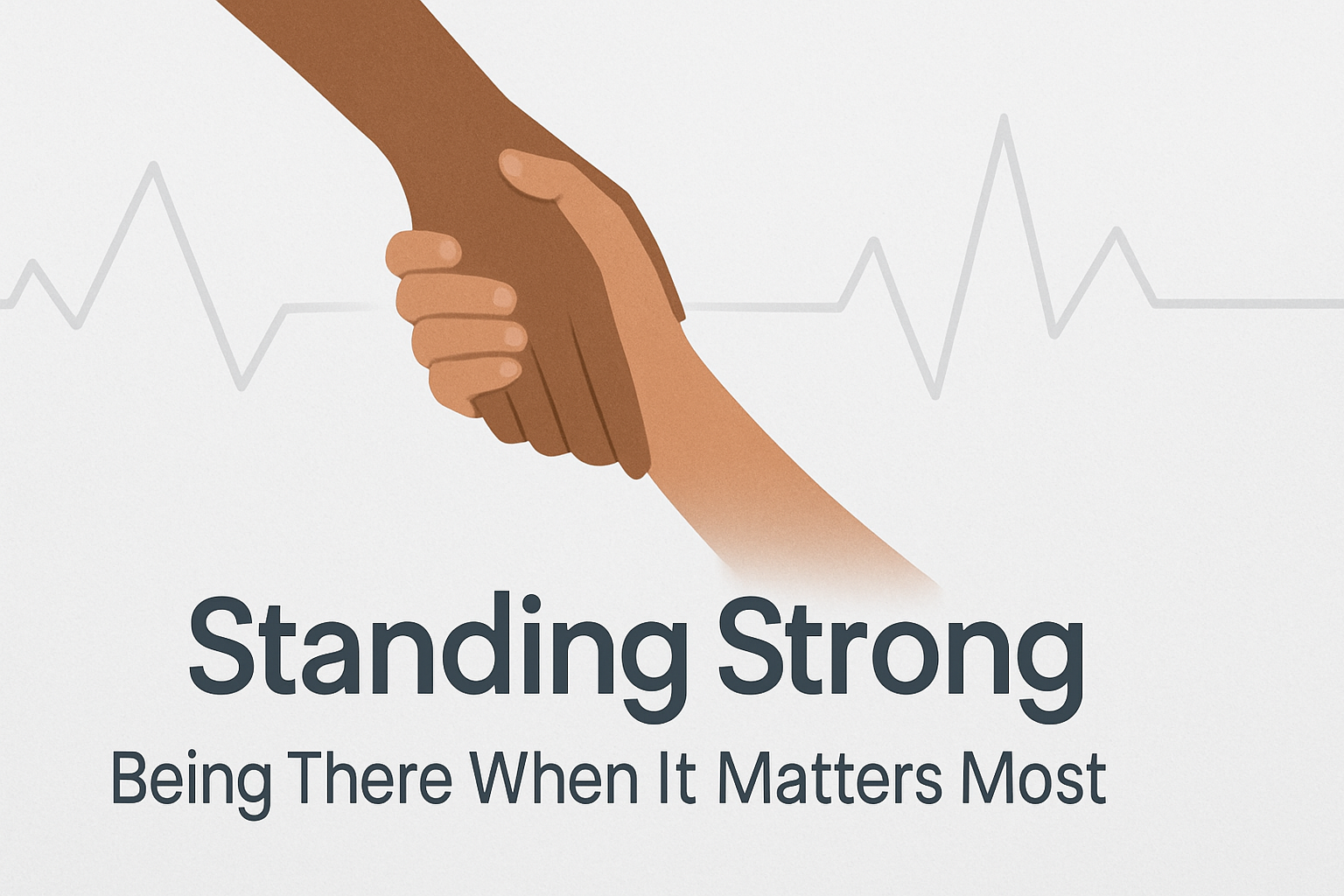Standing Strong: Supporting and Uplifting a Loved One Going Through Mental Health Challenges
By Mfon Michael Okon.
Human Resources Dept, ICTMH.
Mental health challenges are common and can affect anyone, regardless of age, background, or circumstances. When a loved one is struggling, it is important to approach the situation with empathy, patience, and practical support.

Sarah, a young Nigerian entrepreneur who shares a home with her brother Mike noticed that after he lost his investments to scammers and his spouse left him, had become withdrawn, often talking to himself, drinking heavily and had even attempted to walk into a road with speeding cars so he can be crushed to death , she got really concerned about her brother. If you are faced with a situation like Sarah, here are a few things you can do for your loved one:
Understand and Educate Yourself:
First, educate yourself about mental health conditions to dispel misconceptions and promote understanding. Knowledge about common conditions like depression, anxiety, or bipolar disorder can help you respond empathetically (World Health Organization, 2019). Understanding that mental health struggles are legitimate medical issues can also reduce stigma and open pathways to support.
Practice Active Listening:
Active listening involves giving your full attention, acknowledging feelings, and refraining from judgment. This demonstrates that you value their experience and are there to support not judge them. For example, you can say, “That sounds really tough but I’m here for you,” instead of trying to fix the problem immediately.
Offer Practical Support:
Sometimes, practical assistance can make a significant difference, such as helping with daily chores, accompanying them to appointments, or encouraging healthy routines like exercise and proper sleep. Small gestures, like preparing a nutritious meal or helping organize their day, can help alleviate feelings of being overwhelming.
Encouraging your loved one to participate in uplifting activities can combat feelings of isolation. Simple acts like going for a walk, attending a yoga class, or engaging in arts and crafts can promote mental well-being (Gonzalez et al., 2021). These experiences can serve as a distraction and provide moments of joy and connection
Encourage Professional Help:
While your support is invaluable ,mental health professionals are best equipped to provide effective treatment. Gently encourage your loved one to seek help if they haven’t already, and offer to accompany them to appointments if they feel anxious.

Offer to assist in finding resources, such as therapists, support groups, or hotlines, showing them that it’s okay to ask for help (American Psychological Association, 2023)
Maintaining Boundaries:
Mental health recovery is not linear. Your loved one may have good days and bad days, requiring your patience and understanding. Respect their boundaries; some days they may need space (World Health Organization, 2022). Show that you care by simply being present and available when they are ready to talk.
Practice Self Care:
Supporting someone with mental health issues can be emotionally taxing. Remember to set boundaries, seek support for yourself, and practice self-care to sustain your ability to help effectively.
Remember Sarah and her brother Mike in our opening story? When she recognized that Mike was struggling with his mental health, Sarah learned to listen to her brother without judgment, validated his feelings, and gently encouraged him to speak with a therapist. She accompanied him to his first appointment, providing reassurance and support. Over time, with professional help and her ongoing support, Mike began to experience improvements in his mental health.
In summary, supporting a loved one with mental health struggles requires a combination of education, compassion, practical help, encouragement for professional treatment, and self-care. Your patience and understanding can create a safe space for healing and recovery.
References
World Health Organization. (2019). Mental health: Strengthening our response. https://www.who.int/news-room/fact-sheets/detail/mental-health-strengthening-our-response
Gonzalez, A., Lee, J., & Martin, R. (2021). Activities that promote mental well-being: A guide for families. Family Psychology Review, 15(2), 116-129.
American Psychological Association. (2023). Finding a therapist. Retrieved from [APA Website] (https://www.apa.org).
World Health Organization. (2022). *Mental health: Strengthening our response. Retrieved from [WHO Website ](https://www.who.int).
